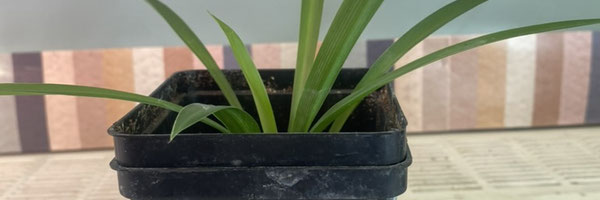Caffeine & Plants
Grade 8
Presentation
No video provided
Hypothesis
Hypothesis
I think caffeine will slow down plant growth because it might affect how plants take in nutrients, and stop them from growing properly .
Research
Background Research
Sarah Ferguson, a professor at the Wright State University, says
Caffeine appears to have a negative effect on plant growth. Although caffeine is found naturally in many plant species, It still stunts root development by reducing protein production.
corescholar.libraries.wright.ed
Caffeine is a stimulant (boost) found in coffee and tea. It can affect plant growth, but the effects are complex and depend on several factors. Some studies have shown that caffeine can actually help plants grow faster. This is because caffeine can increase the rate of photosynthesis, which is how plants make food. However, too much caffeine can be harmful to plants. It can kill or distort plant cells, leading to stunted growth or even the death.
https://corescholar.libraries.wright.edu/cgi/viewcontent.cgi?article=1021&context=biw
Caffeine can also affect the soil in which plants grow. It can increase the acidity of the soil, which can be beneficial for some plants, like blueberries, but harmful to others. The amount of caffeine in the soil also depends on how the coffee is used. For example, coffee grounds can be added to the soil as a fertilizer, but uncomposted grounds can actually stunt plant growth.
"The Effect of Caffeine on Plant Growth | Science project"
https://www.education.com/science-fair/article/effect-caffeine-plant-growth/
Variables
Responding Variables
The growth of the plant, including the number of leaves and the height of both the tallest and smallest leaves.
Controlled Variables
- Plant type (spider plant)
- Water type (tap water)
- Soil type (organic potting mix)
- Size of pot (5″)
- Same brand of coffee/amount (Keurig Green Mountain and Ground coffee beans 20,000 MG worth of caffeine)
Responding Variables
The growth of the plant, including the number of leaves and the height of both the tallest and smallest leaves.
Procedure
Procedure
First I planted spider plants then I added coffee beans to one and not the other and watered them when I thought i should then measured them after I water them.
Observations
the caffeinated plant did better than the non caffeinated plant, possibly because it made the plant more active so it grew larger and the non caffeinated plant dried out at the top of the leaves .
Analysis
the caffeinated plant did better than the non caffeinated plant, possibly because it made the plant more active so it grew larger and the non caffeinated plant dried out at the top of the leaves .
Conclusion
the caffeinated plant did better than the non caffeinated plant, possibly because it made the plant more active so it grew larger and the non caffeinated plant dried out at the top of the leaves .
Application
For the future as a continuation of this project, I see whether coffee beans are affected by caffeine.
Sources Of Error
I might have watered the plants with different water temperatures, which may have affected growth.
Citations
Acknowledgement
Thank you to
- Abigail Beeri & Dovid Andrews for editing my project.
- Ms Lovell for helping me with ideas for my project.
- Ms klaver and Mrs Kaul for letting me use her class time for working on science fair.
- My relatives for encouraging me.

